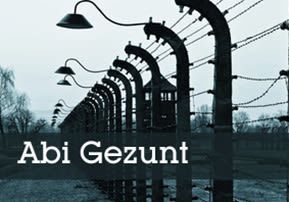
Abi Gezunt
A woman in a concentration camp would look wistfully through the barbed wire, and see the Polish women hanging up their washing. Doing laundry became her symbol of freedom...

A couple of hours ago, I sat down to write something for Breslev Israel, and a stream of whinging whininess suddenly appeared on the page. Boy, was I feeling sorry for myself. Maybe it was the heat, maybe it was the ‘heaviness’ of the times, maybe it was the fact that my daughter refused to go to school today, or that I caught my shoulder in the car door.
Whatever it was, for the first time in a while, I had an attack of ‘poor me’. All the usual suspects were there: poor me, I don’t know what I’m doing with my life. Poor me, I don’t have more kids. Poor me, our finances are so tight…
On and on it could have gone, except Hashem had mercy on me, and sent me a phone call from a friend. I am as transparent as a piece of glass. If I’m happy, the whole world knows about it. If I’m not, people pick it up from the moment I say ‘hello’.
“What’s the matter?” my friend wanted to know. “You sound down.” Usually, I don’t whine, I really don’t. But today, I was losing that particular battle, and I started moaning about not having a real goal in my life, feeling so aimless, not knowing what to do with myself etc etc etc.
Initially, my friend commiserated, and we even had a bit of a chuckle about how it’s so hot, you can’t even spend the day in bed without risking heat exhaustion. But then, the conversation took a more serious turn, and my friend, who suffers from severe pains in her limbs, told me that thank G-d, at least I had my health.
I stopped short.
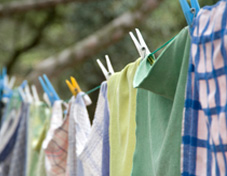 This friend has terribly arthritic hands; can’t peel a potato without it hurting her. She can’t do sponga (Israeli slang for mopping the floors), sweep the floor or lift a child without it hurting. I do all these things and more so easily, thank G-d. All of a sudden, I realised how ridiculously self-pitying I must have sounded, whining on about having nothing to do except sponga and washing.
This friend has terribly arthritic hands; can’t peel a potato without it hurting her. She can’t do sponga (Israeli slang for mopping the floors), sweep the floor or lift a child without it hurting. I do all these things and more so easily, thank G-d. All of a sudden, I realised how ridiculously self-pitying I must have sounded, whining on about having nothing to do except sponga and washing.Sometimes, it’s hard for us western educated ‘career types’ to understand that these mundane chores are meaningful, purposeful and important. Sometimes, I really struggle to see the value of washing dishes that will be back in the sink within the hour, or spending hours making food that will get eaten in five minutes.
What’s the point of it all? That’s what I was pondering this morning, before my friend called, and I was starting to feel really quite miserable and demoralised that ‘this’ appeared to be the sum total of my contribution to the planet.
But after that call, I realised what a gift it is to be able to do these things. Baruch Hashem, I’m healthy enough to wash up every day, cook every day, clean every day, grocery shop every day.
Baruch Hashem, I even have the husband and kids to run around after in the first place; Baruch Hashem, I can afford all the water it takes to do three loads of laundry a day, or to buy the food that’s making the plates dirty.
Hashem gave me a ‘perspective check’, and I realised that I’d been looking at things all wrong. In Yiddish, they say ‘abi gezunt’- as long as you have your health. And this morning, I realised yet again just how right that saying is.
But what if you don’t have your health? What if you’re like my friend, who finds the simplest actions painful?
A few years’ ago, I read an article by a woman who was interred in a concentration camp during World War Two. Every day, she used to look wistfully through the barbed wire, and see the Polish women hanging up their washing.
For her, the chore of doing laundry was a wondrous thing! It meant that a person was free, free to live a ‘normal’ life, with all the normal, mundane chores that are part and parcel of a free existence.
She wrote that when she got out of that concentration camp, she savoured doing the washing up and washing every single day; it was a sign she was free.
There is always something to say ‘thank you’ to Hashem about. For most of us, we don’t need to go further than ‘abi gezunt’ – thank G-d, we’re healthy! We’re breathing without respirators; we have the energy to get out of bed and do things; we are normally pain-free; we can see, speak, hear and eat without any problems – Baruch Hashem!
But if we are being challenged on our health, there is still plenty to be grateful for. Thank G-d, I have spouse / parents / kids / siblings who care about me. Thank G-d, there are currently no rockets falling on my head. Thank G-d, I have parnassa. Thank G-d, I have food to eat and clothes to wear.
Each and every one of us has ‘something’ to be grateful for; and most of us have literally thousands and thousands of things to be grateful for.
To quote a song by the Breslev singer Shuli Rand, ‘and if the situation is so bad it’s oy oy oy oy, at least thank Hashem, that you’re still alive…”
I got off the phone with my friend, and I immediately went to do some hitbodedut, to apologise to Hashem for being so whiney and ungrateful this morning. I’m only human, and even the best of us don’t always act appropriately. So I said sorry, I asked Hashem to please forgive me for my attack of ‘poor me’, and I thanked Him for sending me the clear nudge to give me back my proper perspective.
Abi gezunt. If we have health, we have every bracha. And even if we don’t have health, we still have so very much to sing to Hashem about.





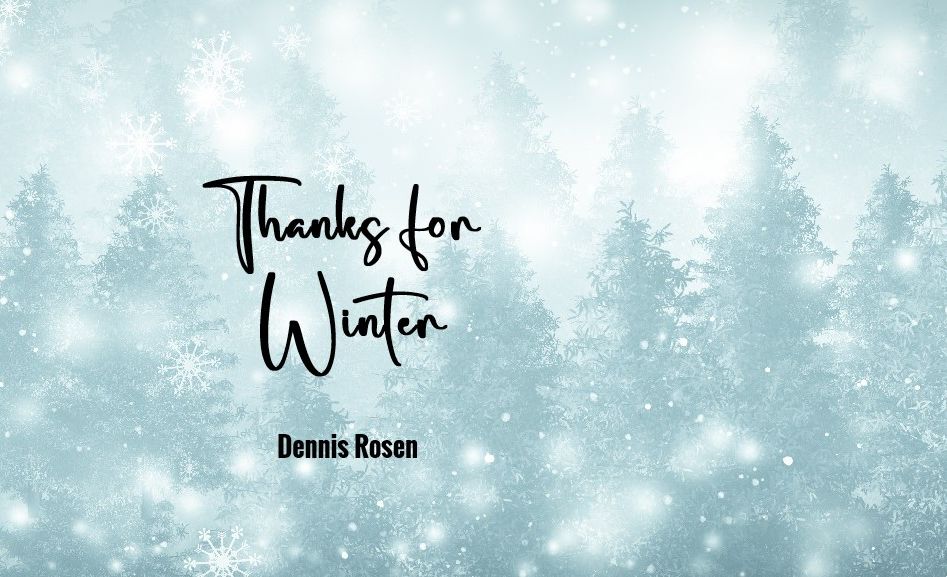
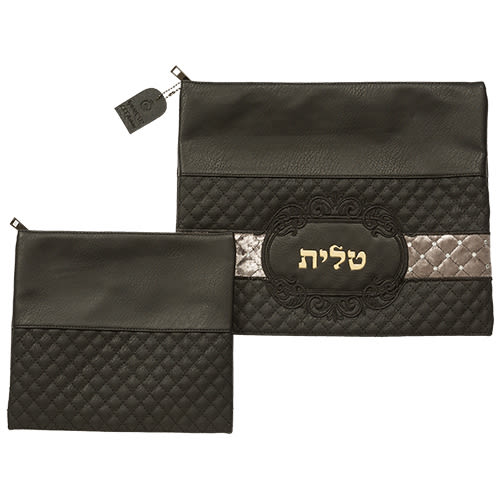
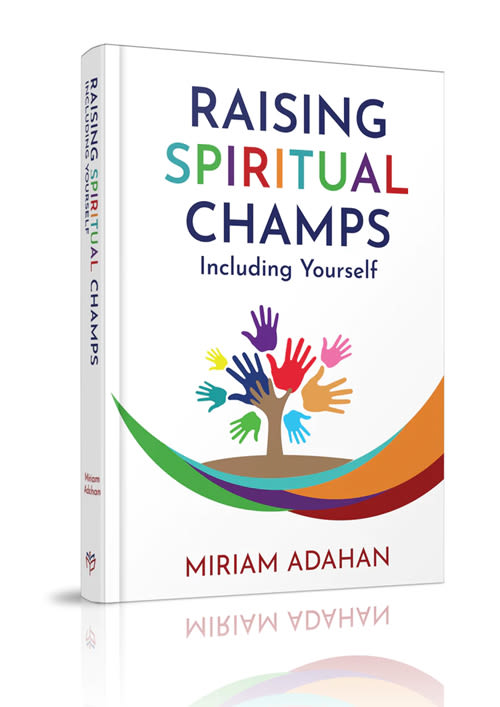
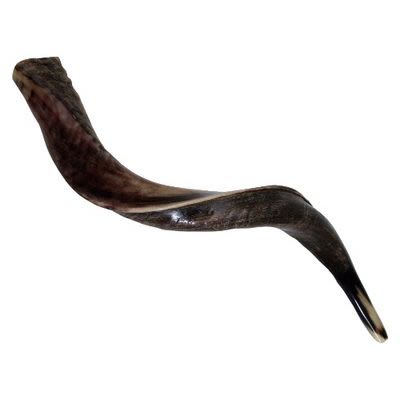
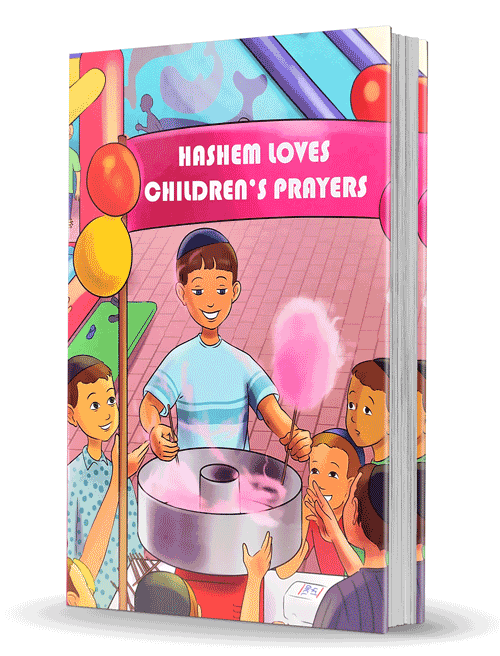
Tell us what you think!
Thank you for your comment!
It will be published after approval by the Editor.